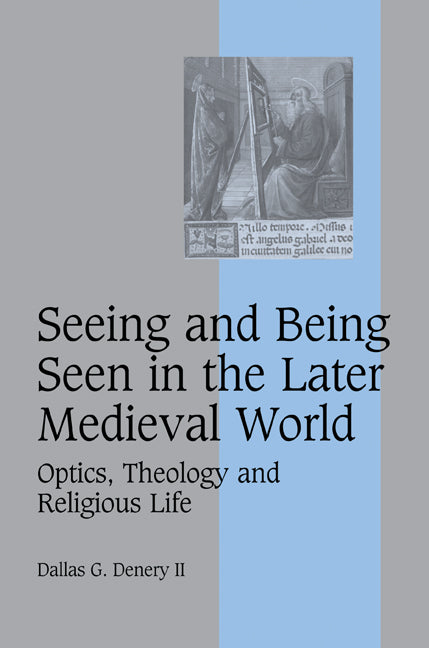Freshly Printed - allow 8 days lead
Couldn't load pickup availability
Seeing and Being Seen in the Later Medieval World
Optics, Theology and Religious Life
This book explores the later medieval concept of seeing and being seen which led to a unique concept of self.
Dallas G. Denery II (Author)
9780521108935, Cambridge University Press
Paperback / softback, published 12 February 2009
220 pages
22.9 x 15.2 x 1.3 cm, 0.33 kg
'… Seeing and Being Seen is a valuable work, both because it contributes to the important project of considering the confluence of science and religion and because it foregrounds otherwise little-known and under-utilised texts in the field of medieval epistemology.' Marginalia
During the later Middle Ages people became increasingly obsessed with vision, visual analogies and the possibility of visual error. In this book Dallas Denery addresses the question of what medieval men and women thought it meant to see themselves and others in relation to the world and to God. Exploring the writings of Roger Bacon, Duns Scotus, Peter Aureol and Nicholas of Autrecourt in light of an assortment of popular religious guides for preachers, confessors and penitents, including Peter of Limoges' Treatise on the Moral Eye, he illustrates how the question preoccupied medieval men and women on both an intellectual and practical level. This book offers a unique interdisciplinary examination of the interplay between religious life, perspectivist optics and theology. Denery presents significant new insights into the medieval psyche and conception of the self, ensuring that this book will appeal to historians of medieval science and those of medieval religious life and theology.
Introduction
1. Ponderare statera meditationis: self as self-presentation in early Dominican religious life
2. The devil in human form: confession, deception and self-knowledge
3. Peter of Limoges, perspectivist optics and the displacement of vision
4. Normalizing error: Peter Aureol on the importance of appearances
5. Probability and perspective: Nicholas of Autrecourt and the fragmentation of vision
Conclusion: vision, promise deferral.
Subject Areas: History of science [PDX], History of religion [HRAX], Early history: c 500 to c 1450/1500 [HBLC], European history [HBJD]


